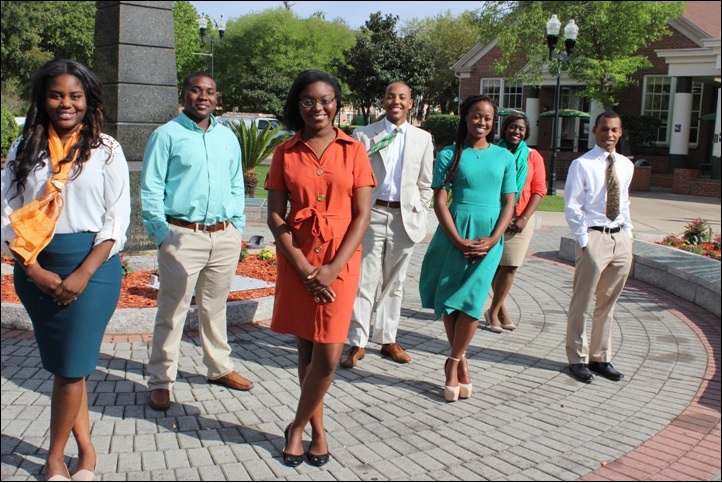
The Return of FAMU J-School Journals
By Keytron Hill
Outlook Writer
FAMU J-School Journals are back and Florida Agricultural & Mechanical University’s award winning journalists have their own stories to tell. The narrative features will premiere at The FAMU Artist in Bloom Festival on April 4, from 4 p.m. to 6 p.m., in Lee Hall.
Journalism students LaCrai Mitchell, Donovan Long, Quintin Gee, and Jordan Kinsey teamed up with partners to put together four compelling features, touching on topics such as: the continuous struggle of Historically Black College and University (HBCU) athletic programs, African-American father and son relationships, the effects of cancer and the story of Americans who feel stuck in their less fortunate neighborhoods.
“Our process has been a big team putting together these 15 minute pieces that tell stories that are really powerful,” said Mitchell, the producer of the narrative feature entitled “Trapped: The Restricted American Dream.”
Mitchell’s piece focuses on Americans all around the nation who feel stuck in their neighborhoods, specifically neighborhoods with high poverty and high violence rates. Mitchell believes they feel stuck because they can’t afford to leave or lack the proper education that would enable them the opportunity to move elsewhere.
Gee, the narrative producer of “The Red Zone: State of HBCU Sports,” wanted to express the significance of his feature will have on the African-American culture and HBCU’s as a whole.
The Red Zone takes a look at the evolution of sports and how integration played a huge role in shaping sports as we see it today.
“I think my narrative takes a look at an issue that we all see and don’t realize. It’s important for my narrative to be apart of the festival because sports plays a huge role in our culture, to see the disparity that PWI’s (Predominately white institutions) and HBCU’s have. I believe the way we went about portraying it in our documentary, people will enjoy it.”
Gee talked boastfully about partnering with journalism student Jason Joseph. Gee said, “Jason was my statistician. Jason was my refer-to guy and he helped me cultivate my idea.”
For Kinsey and Womack, their feature was more personal and seemed to hit home for Womack. Titled “Stage 5,” their piece takes a deep look on the impact that cancer has on patients and love ones. Stage five represents the stage of life after cancer.
“My mom passed away from breast cancer three years ago and that’s where I got the idea to do this piece,” said Womack.
“One thing that I learned from my mom is that she lived her life and even though she got cancer she still lived. Even though she passed away I feel that she is still living.”
Womack added, “People who don’t know about cancer can have a misconception about what it is. So I just wanted to make sure that people understand that cancer is not the end-off. It’s just another bump in the road”
Long believes his feature is relevant and is something many people can relate to. Entitled “Return to Sender,” Long produces a narrative that exhibits letters from fathers to their African-American sons that have passed away unjustly.
“This is becoming a reoccurring thing in society where African American males a lot of times below the age of 18 tend to be the target for certain injustices. I think that giving the history of what African American males have gone through historically makes this relevant,” said Long.
Spring 2013 was the last year J-school journals took place and the students admitted to feeling the pressure of being the “revolution” class to bring the 15-minute narratives back. These features will be the student’s final project for their Documentary class.
The producers all hope to get their messages out to Tallahassee and strongly believes that each feature is relatable and worth seeing.
“With some of these pieces, it’s easy to think that we can’t relate and that we can’t tell the story well because we aren’t our character but we can. I think that’s why people should come out, these stories affect all of us, not only as Americans but as humans,” said Mitchell.








